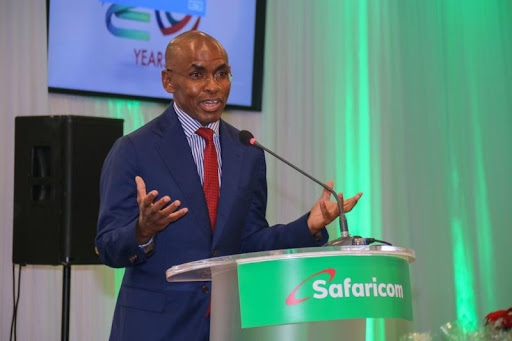Cement firms are in a spot for failing to pay Sh2.1 billion levies, bills that some did not declare in their financial statements.
An audit has revealed some of the major cement manufacturers have not paid the levies for the past eight years, putting the Mining department on the spotlight too.
Auditor General Nancy Gathungu said it is doubtful levies owed by East Africa Portland Cement Company, Savannah Cement Company and National Cement Company would be recovered.
The audit also revealed Tata Chemicals and Carbacid have failed to remit royalties for many financial years leading to a pile-up of the same.
It also emerged that EAPCC and Savannah had not been issued mineral dealer’s licences or permits.
Gathungu said “the companies continued to undertake mining activities and deal in minerals without valid licences or permits contrary to the Mining Act, 2016.”
She said the department’s explanation that Savannah does not undertake mining activities but instead imports clinker, the main ingredient for cement manufacturing, was unsatisfactory.
The auditor said cement manufacturing involves mixing clinker with other minerals such as gypsum and pozzolana, minerals which are sourced locally.
“A request to the company to disclose the suppliers of the other minerals was not responded to. Consequently, the management was in breach of the law,” Gathungu said.
The audit revealed that EAPCC owed taxpayers Sh404 million accrued from the financial year 2014-15, Savannah (Sh370 million), National Cement (Sh51 million), Tata Chemicals (Sh675 million) and Carbacid (Sh78 million).
In a worrying trend, the auditor said the cement firms had not been assessed for cement levy from the financial years 2018-19 to 2020-21.
EAPCC, for instance, has since 2018-19 filed incomplete self-declaration assessments and was, therefore, not assessed for cement levy.
Gathungu said the PS John Omenge-led department did not provide any explanation on why levies that were due and chargeable to the company were not assessed and reported in the financial statements.
“Under the circumstances, the recoverability and accuracy of the Sh404,759,572 as of June 30, 2021 could not be ascertained,” Gathungu said.
This was even as the auditor questioned why the Mining Cabinet secretary lowered the levy rate for National Cement to Sh100 per tonne from Sh140, leaving out other firms handling the same product.
Gathungu said the rate adjustment was irregular as the ministry did not have regulations to determine firms eligible for the rate adjustment.
Section 188(2) of the Mining Act, 2016 requires the Cabinet secretary to make regulations to provide for the conditions and criteria for reduction or suspension of payment of royalties.
The auditor said the regulations had neither been drawn at the time of granting the reduction nor by the time of the audit in February 2022 hence the department was in breach of the law.
“There was no evidence of gazettement of the revised cement levy rate as provided for in Section 183(2) of the Mining Act, 2016.
“In addition, it was not clear why the reduced levy rate of Sh100 applied only to one company while the sector had several players manufacturing the same product,” she said.
National Cement, therefore, was found to have irregularly underpaid the cement levy by Sh51 million after paying Sh324 million between July 2020 to June 2021, instead of Sh375 million.
Savannah has also been flagged over non-payment of Sh370 million in respect of cement minerals levy amid concerns about the authenticity of its declarations.
The company, the audit revealed, reneged on an agreement it entered into with the Mining department to settle the arrears in 24 months from September 2017.
“The company (Savannah) had reneged on the plan, stating that it did not hold a mineral license from the state department and therefore was not liable to pay the levy,” Gathungu said.
The firm is also at the High Court challenging Legal Notice No.222 of 2013, which required payment of cement minerals levy by all cement-producing companies in Kenya.
“Although management indicated that consent has been recorded in court for settlement of the matter, the same was not provided for audit review,” the auditor said.
Further, the company had not filed any self-declaration assessment for the 2018-19 financial year to the time of the audit in February 2022, hence has not been assessed for cement levy.
During the year under review, Savannah remitted Sh5 million but the remittance was not supported by production and sales reports.
“Under the circumstances, the recoverability of the Sh370,862,635 as at June 30, 2021 could not be confirmed.”
For Tata, the company had cited serious operational and financial challenges as the reason for the inability to pay the royalties at the gazetted rates and sought a reduction.
Tata has thus not proposed any payment plan to settle the accrued royalties, while Carbacid was yet to agree with the department on the rates.
(Edited by Bilha Makokha)
“WATCH: The latest videos from the Star”








